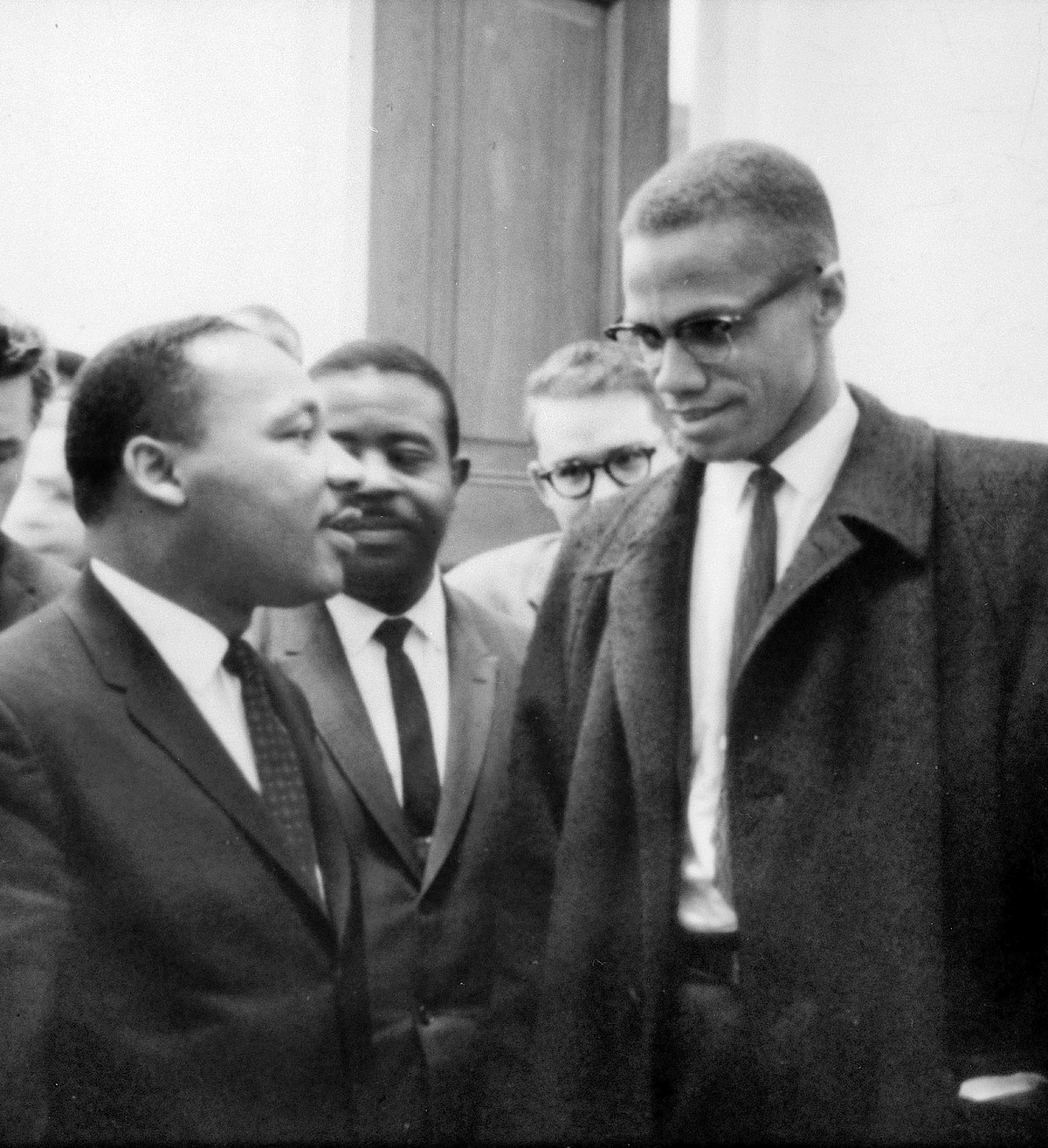
Malcolm X joins the movement
Washington D.C., DC, USAIn March 1964, Malcolm X, national representative of the Nation of Islam, formally broke with that organization, and made a public offer to collaborate with any civil rights organization that accepted the right to self-defense and the philosophy of Black nationalism. Gloria Richardson, head of the Cambridge, Maryland, chapter of SNCC, and leader of the Cambridge rebellion, an honored guest at The March on Washington, immediately embraced Malcolm's offer. Mrs. Richardson, "the nation's most prominent woman civil rights leader," told The Baltimore Afro-American that "Malcolm is being very practical...The federal government has moved into conflict situations only when matters approach the level of insurrection. Self-defense may force Washington to intervene sooner."
On March 26, 1964, as the Civil Rights Act was facing stiff opposition in Congress, Malcolm had a public meeting with Martin Luther King Jr. at the Capitol. Malcolm had tried to begin a dialog with King as early as 1957, but King had rebuffed him. Malcolm had responded by calling King an "Uncle Tom", saying he had turned his back on black militancy in order to appease the white power structure. But the two men were on good terms at their face-to-face meeting. There is evidence that King was preparing to support Malcolm's plan to formally bring the U.S. government before the United Nations on charges of human rights violations against African Americans. Malcolm now encouraged Black nationalists to get involved in voter registration drives and other forms of community organizing to redefine and expand the movement.
Civil rights activists became increasingly combative in the 1963 to 1964 period, seeking to defy such events as the thwarting of the Albany campaign, police repression and Ku Klux Klan terrorism in Birmingham, and the assassination of Medgar Evers. The latter's brother Charles Evers, who took over as Mississippi NAACP Field Director, told a public NAACP conference on February 15, 1964, that "non-violence won't work in Mississippi...we made up our minds...that if a white man shoots at a Negro in Mississippi, we will shoot back." The repression of sit-ins in Jacksonville, Florida, provoked a riot in which black youth threw Molotov cocktails at police on March 24, 1964. Malcolm X gave numerous speeches in this period warning that such militant activity would escalate further if African Americans' rights were not fully recognized. In his landmark April 1964 speech "The Ballot or the Bullet", Malcolm presented an ultimatum to white America: "There's new strategy coming in. It'll be Molotov cocktails this month, hand grenades next month, and something else next month. It'll be ballots, or it'll be bullets."
